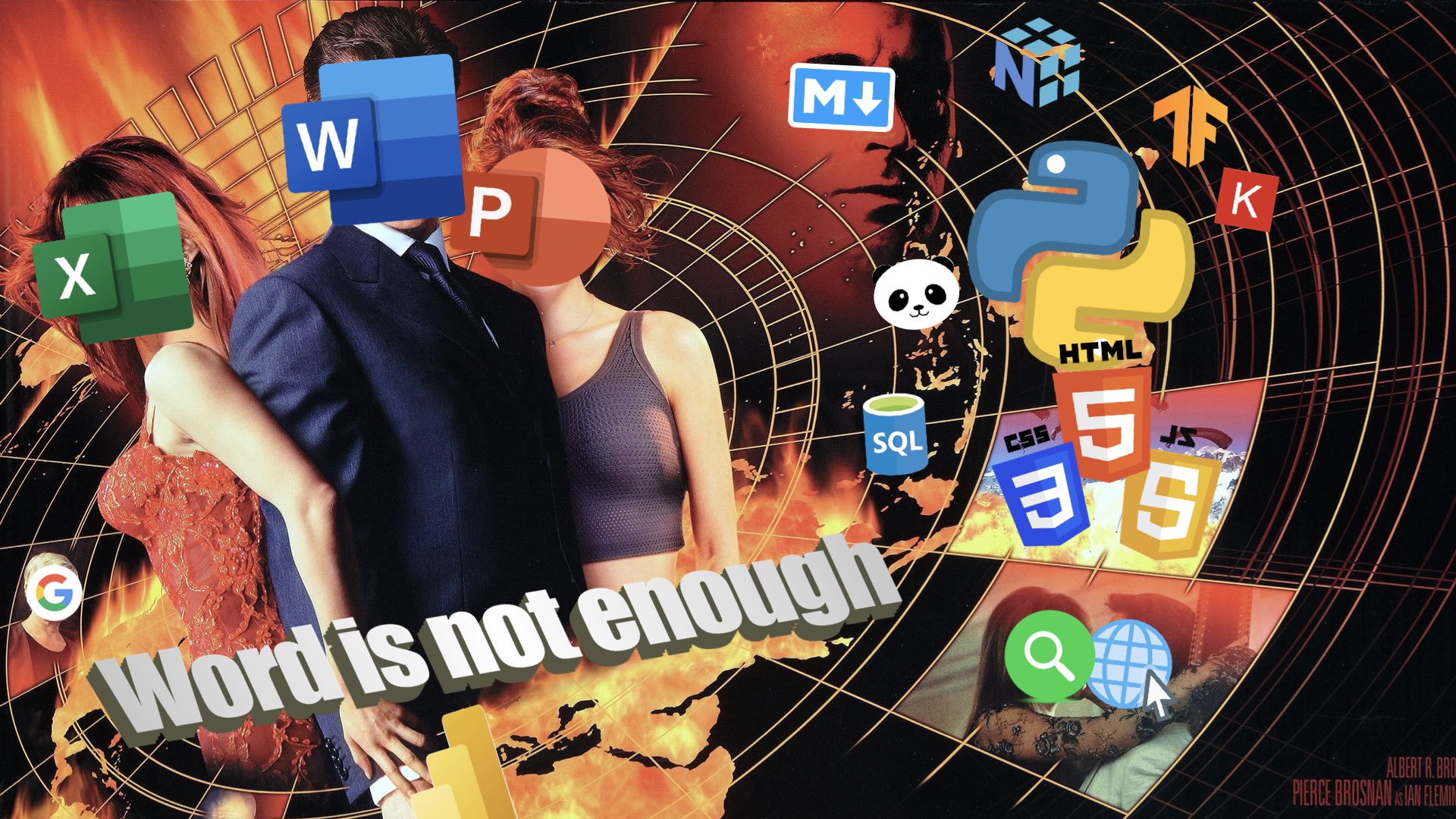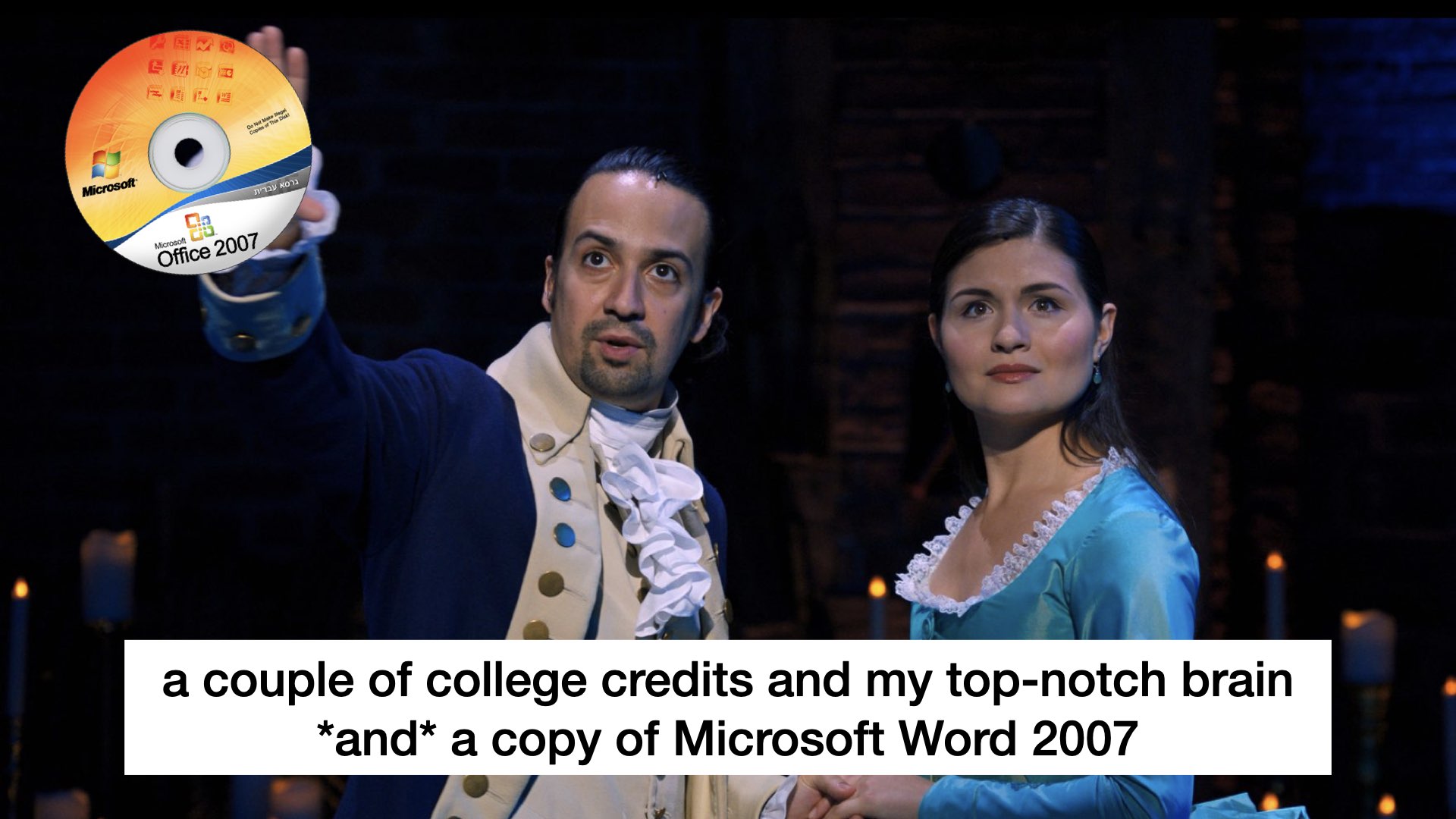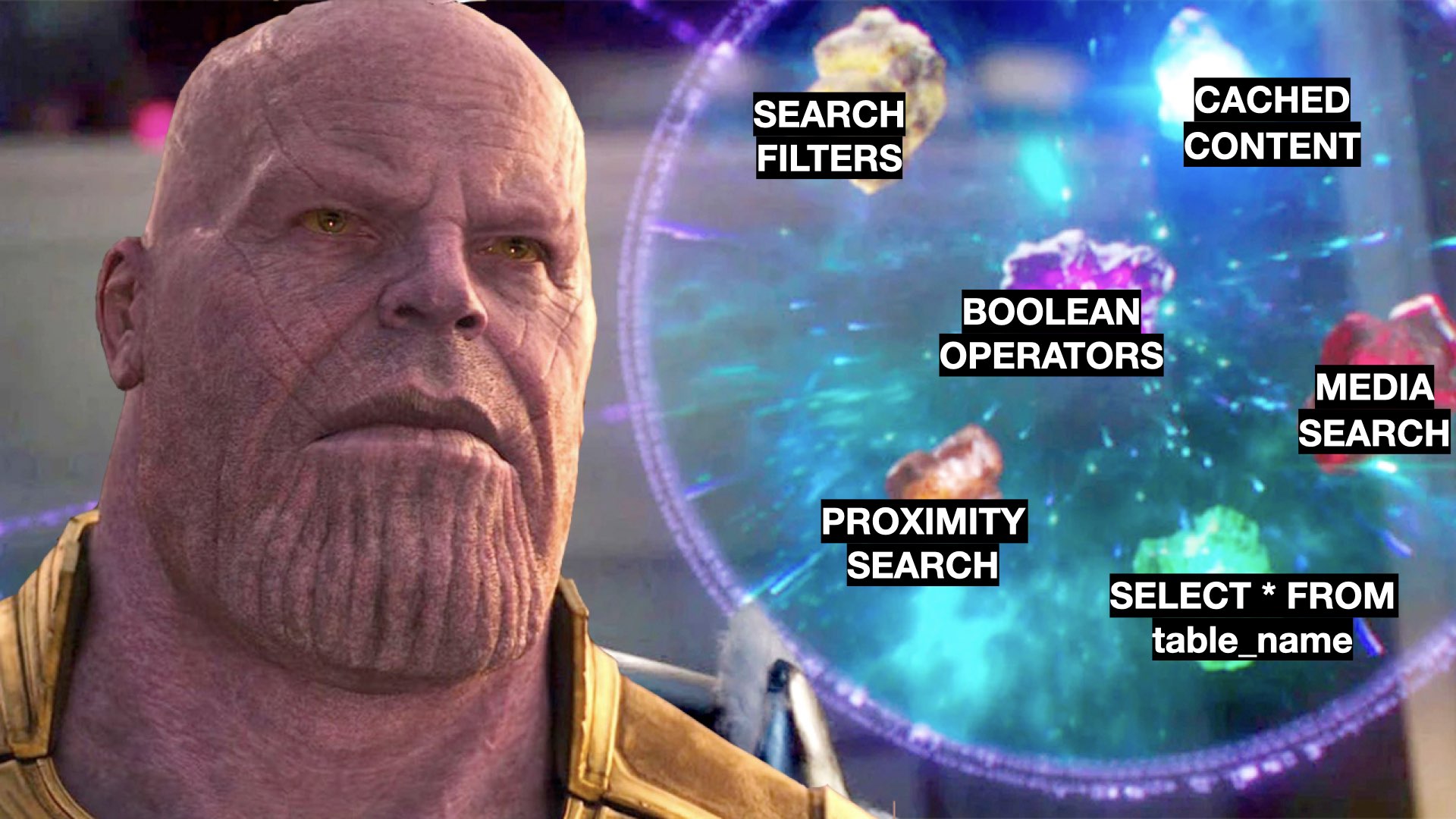Word is not enough
Some tips for playing a generalist public policy career on hard mode.
14 July 2021

Generalist policy professionals usually show up armed with three things: a degree, a curious mind, and an acquaintance with Microsoft Word.
It’s been this way for decades.
The basic unit of policy remains the perfectly-crafted memo.1 Most people working in policy studied a subject that rewarded them for writing essays, and Word was usually the default authoring environment.

Times have changed though, and if you want to stand out in the 21st century then being able to use Word is not enough.
Training to become a first-rate policy professional is like training to become an elite athlete. It takes aptitude – but also passion, focus and a determination to master the environment you’re playing in.
If you work in a policy role then this means developing deep subject matter expertise and working hard to build your structured problem solving, communications and management skills.
It also means taking responsibility for getting the maximum possible leverage from the software at your disposal.
It doesn’t matter what you studied at school or university – the internet provides everything you need for this, at minimal financial cost and with no requirement to seek permission from anyone.
Bottom line: today’s generalist policy professionals can gain superpowers that previous generations could never have imagined.
Here are some tips on how to access them.
Microsoft Office
Microsoft Office is the OG of productivity software, and Word, Excel and PowerPoint are its Triforce. They say we only use 10% of our brains, but I’m convinced most people are only using 1% of what these applications are capable of doing for them.

Get the desktop apps and not their inferior web versions, and learn them inside out. People who start their careers in banking or consulting crush this early on, but anyone can do it if they put in the effort. Invest the time now and it’ll pay off many times over.2
Bonus mission: learn PowerBI.
HTML, CSS and JavaScript
Policy products in the year 2021 should target the web, not the printing press. HTML, CSS and JavaScript are the foundations for all modern websites (including the one your organisation puts its policy work on).

If you want to publish true internet-era policy products and not just digital versions of paper documents, then understanding how websites are architected – and in particular the separation between content, styling and behaviour – is essential.
Bonus mission: learn Markdown.
Search operators
There’s no shame in admitting that the Google search box is the first port of call for every new policy project. The ability to bend internet searches to your will in order to find what you’re looking for is your secret weapon.

Google search operators and filters (and their equivalents for Gmail and Drive). Twitter search parameters. Wikipedia search strings. Internet Archive advanced search. You’re not the only one cursed with knowledge.
Bonus mission: learn SQL.
Python
Mastering the core Office apps and the intricacies of the web will get you a long way, but at some point you’ll need to take things to the next level. Python is a popular and powerful programming language, and it’s pretty straightforward for new learners to get to grips with.

Perhaps you need to manipulate or plot a big dataset, or have a repetitive task that needs automating, or need to interact with an API, or a million other things that would put rocket boosters on your policy work. You’ll go further and get there faster if you teach yourself how to code.
Bonus mission: learn Keras.
-
The humble memo is known by different names in different places, e.g. “paper”, “report”, “briefing” – or the more familiar “submission” for those in HM Government. ↩
-
I know Google Docs, Sheets and Slides are waaay more internet native, and that Pages, Numbers and Keynote came bundled with your Mac. But you’re still best off mastering the Microsoft suite first. ↩